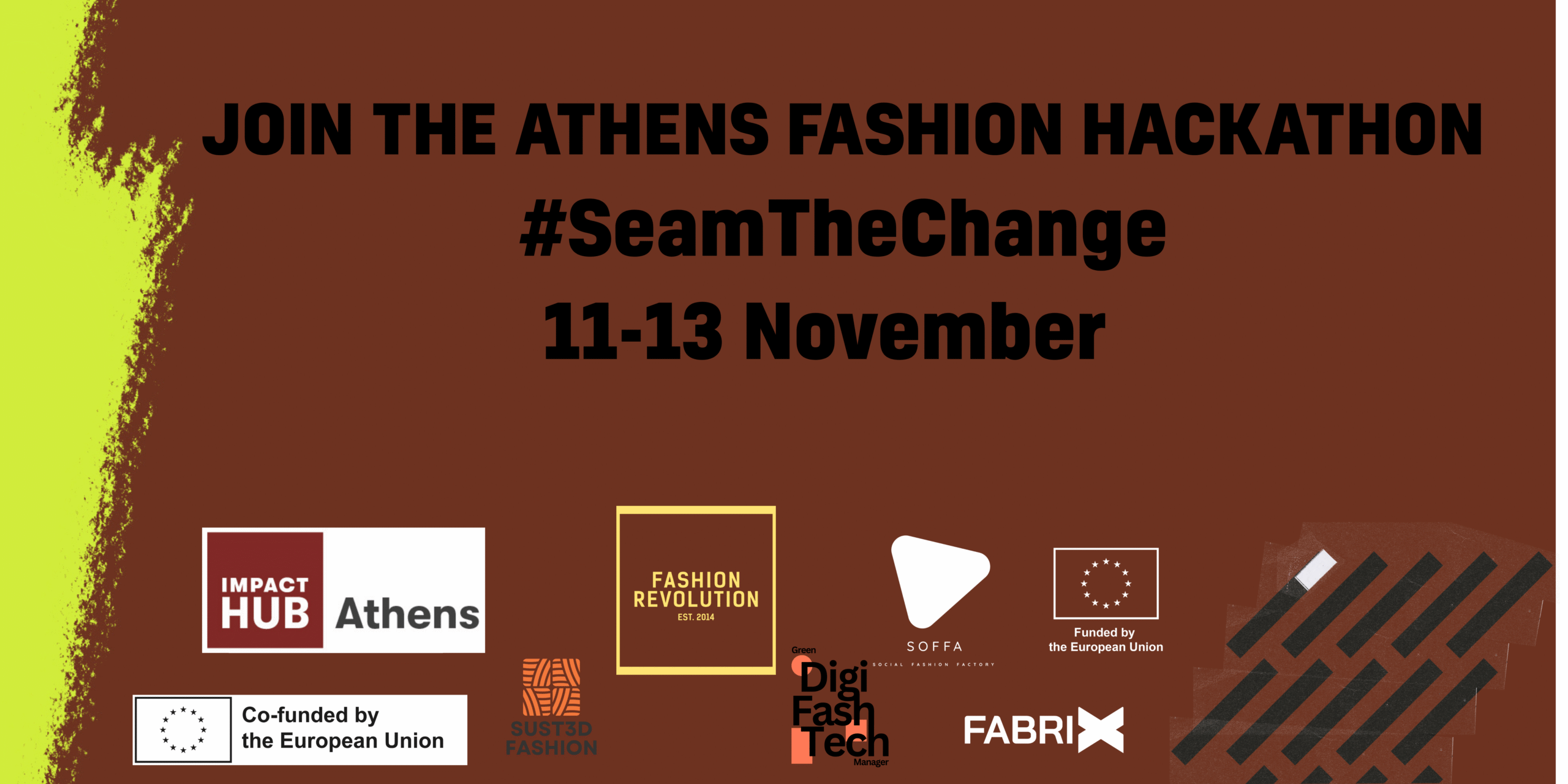
11–13 November 2025 · Impact Hub Athens Karaiskaki 28 Psyrri Athens
Co-creating circular fashion and textiles for Athens — powered by FABRIX and hosted by Impact Hub Athens, in co-organization with SOFFA and Fashion Revolution Greece.
End human and environmental exploitation in the global fashion industry
Safe, decent working conditions and living wages for all people in the supply chain
Redistributed and more equitable balance of power across the global fashion industry
A bigger and stronger labour movement in the global fashion industry
A global fashion industry that works to conserve valuable resources and regenerate ecosystems
A culture of transparency and accountability throughout the value chain
An end to the culture of waste and a transition to a system where materials are used for much longer and nothing is wasted
Intangible heritage, craftsmanship, and local wisdom are recognized and valued
Register / Apply
Join the teams, talks, inspiration sessions, and parallel workshops across all three days, and experience prototyping up close.
Enter the hackathon with your idea, product, service, program, or innovation and work with mentors to build a scalable, circular solution.
Limited seats. Applications reviewed on a rolling basis to ensure a balanced mix of skills and sectors.
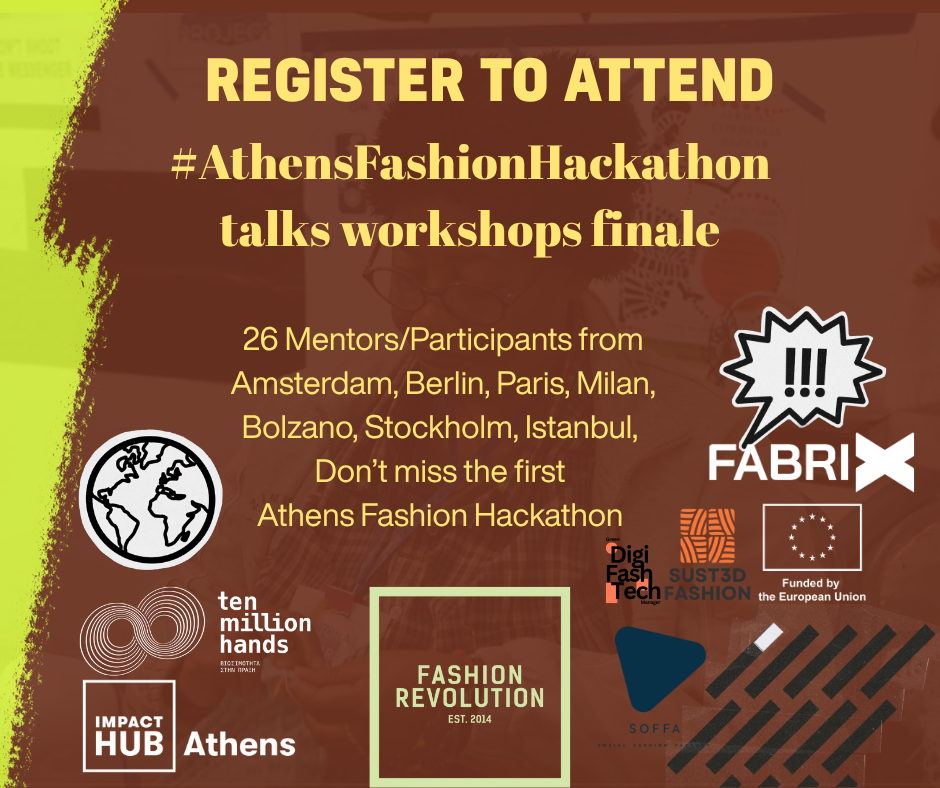
Quick Facts
Dates: Tuesday–Thursday, 11–13 November 2025
Venue: Impact Hub Athens
Times:
Day 1 (Tue 11 Nov): 11:00–15:00
Day 2 (Wed 12 Nov): 11:00–16:00
Day 3 (Thu 13 Nov): 11:00–14:00 hacking · 18:00 Finale (jury, talks, team pitches, awards) & networking
Format: In-person, multi‑stakeholder hackathon with international and Greek mentors, blended learning, and hands‑on prototyping.
About the Hackathon
Seam the Change is a catalyst for regenerative, sustainable, and inclusive urban textile & clothing (T&C) ecosystems. We bring together facilitators, SMEs, policy makers, creative practitioners, and end‑users to co-create practical, human‑centered solutions to the most pressing challenges in the local T&C sector.
With the FABRIX platform embedded throughout, teams accelerate circular manufacturing, strengthen local supply chains, and build collaboration across industry, policy, education, and communities. Teams will also apply the Action Research Ecosystem Development lenses by the Athens University of Economics & Business (AUEB), Department of Management Science & Technology to ensure that solutions are context‑aware, evidence‑based, and ready to move from pilot to practice.
International scope: We welcome 26 mentors and participants from across Europe — Amsterdam, Berlin, Paris, Istanbul, Milano, Bolzano, Padova, North Macedonia and Stockholm — bringing leading academic, industry, and Fashion Revolution expertise into Athens.
Community invitation: Greek local actors are invited to attend inspirational talks, take part in open activities, and discover the people, tools, and ideas shaping circular fashion in the city.
Who Should Join
Fashion/textile Actors & Community: Participate in the teams, Attend the talks, explore the space, join the parallel workshops, and meet the ecosystem.
Businesses & Teams: Brands, retailers, producers, startups, fashion designers, textile/fashion craftsmen and artisans, innovators, recyclers, technologists, artists, embroiders, weavers, and any business applying or committing to circular, local models (reuse, repair, recycling, upcycling, circular design, rental/resale, made‑to‑order, waste‑as‑resource).
Likely participants include: Local policy officials; SMEs & entrepreneurs; civil society & community organizations; educators & trainers; researchers & experts; creatives & designers; and end‑users/consumers.
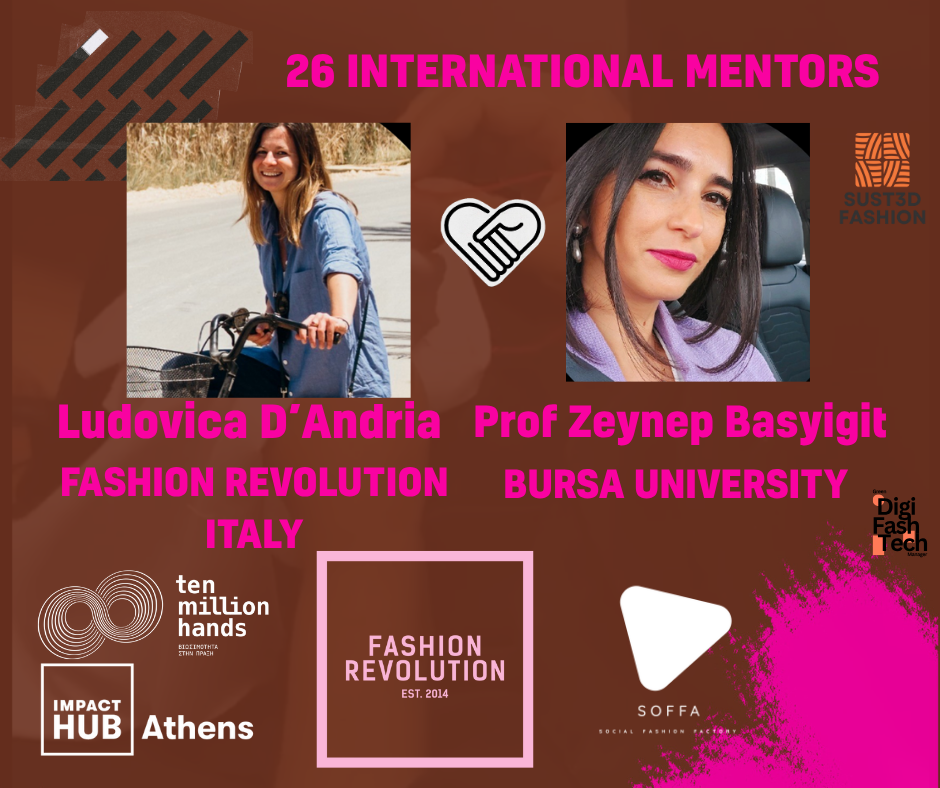
What You Will Gain
Specialized skills: Circular design, zero‑waste pattern cutting, upcycling, 3D/digital design, small‑batch production, microfibre reduction, sustainable water management.
Transversal competencies: Networking and collaboration, presentation and pitching, problem‑solving, creative co‑creation, and systems thinking.
Knowledge areas: Sustainability practices, circular business models, fair labor and social inclusion, and policy alignment for local ecosystems.
Adaptive capacities: Innovation mindset, cross‑disciplinary teamwork, and sustainability adaptability in real‑world manufacturing contexts.
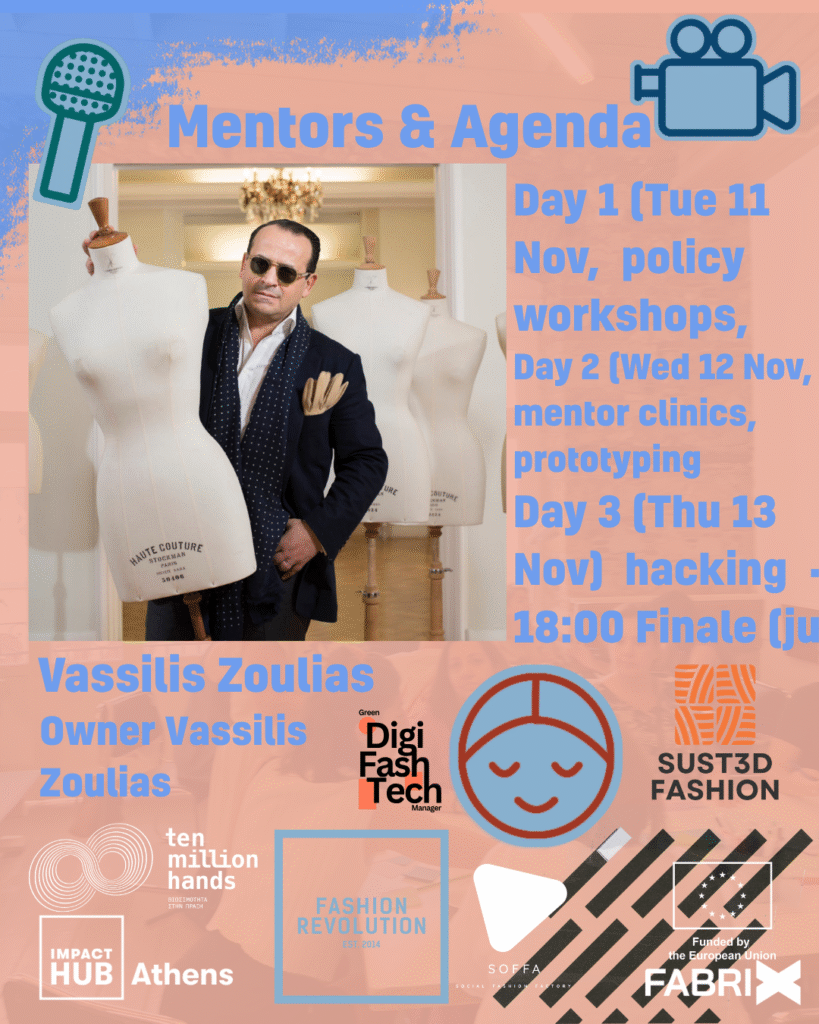
Challenges (Teams choose one or combine)
Waste Management & Reduction
Transform textile waste into value through reuse, repair, upcycling, and smart disassembly. Explore AI‑assisted inventory management to prevent overproduction and reduce dead stock.
Ocean Microplastics
Address microfibre shedding across the product lifecycle. Consider material choices, washing/filtration solutions, product care, and design for longevity to keep fibres out of waterways.
CO₂ Emissions & Energy Efficiency
Use digital design simulations and virtual sampling to limit physical prototypes and travel. Optimize small‑batch production and local logistics to cut emissions in real operations.
Circular Business Models & Digital Solutions
Pilot rental/resale, repair services, take‑back programs, traceability, and data‑driven operations. Build circular services that make business sense and deliver measurable impact.
AI & 3D for Sustainability
Integrate AI and 3D workflows to streamline decision‑making, reduce errors, and shorten cycles. Demonstrate how technology can reduce environmental footprint across design, sourcing, and production.
Pillars (Guiding Orientation)
Integrate Advanced Digital Tools: Embed AI, 3D design, and data analytics into fashion operations to improve accuracy, transparency, and speed.
Promote Corporate Leadership: Establish strong practices in circular economy, eco‑design, and CO₂ reduction that resonate with customers and meet policy expectations.
Lead Organisational Change: Align strategies, teams, and processes to deliver on EU climate and circularity targets.
S+T+ARTS Approach: Co‑create by combining Science, Technology, and the Arts, fostering solutions that are functional, beautiful, and socially meaningful.
Methods & Experience
We combine experiential learning (challenge‑based problem solving and hands‑on prototyping), peer‑to‑peer collaboration in mixed teams, and rotating mentoring on circular design, policy implementation, sustainable business models, and digital innovation. A blended learning pathway connects in‑person workshops with the FABRIX platform’s toolkits, case studies, and policy resources. Throughout the three days, the space hosts inspirational speeches and parallel workshops/events to deepen skills and spark new collaborations.
Agenda
Day 1 — Map the System (Tue 11 Nov, 11:00–15:00)
Welcome & framing · Policy and context overview · Ecosystem mapping of Athens T&C · Challenge deep‑dives · Problem statements refined.
Facilitated policy workshops & dialogues by Policy Lab (Founder: Nicholas Yatromanolakis), translating policy into practice and framing the challenges for action.
Day 2 — Co‑Create, Pitch Ideas & Form Teams (Wed 12 Nov, 11:00–16:00)
Lightning idea pitches · Team formation around priority challenges · Inspiration cases · Design thinking sprints · Hands‑on prototyping · Rotating mentor clinics (circular design, policy, business models, digital/3D) · Mid‑day and end‑of‑day checkpoints.
Day 3 — Refine, Validate & Pitch (Thu 13 Nov)
11:00–14:00: Hacking & validation, integration with FABRIX and the Action Research Ecosystem Development lenses (AUEB DET), community/user feedback, business model shaping, and policy fit.
18:00: Finale — Jury session & inspirational talks · Team pitches · Awards · Networking.

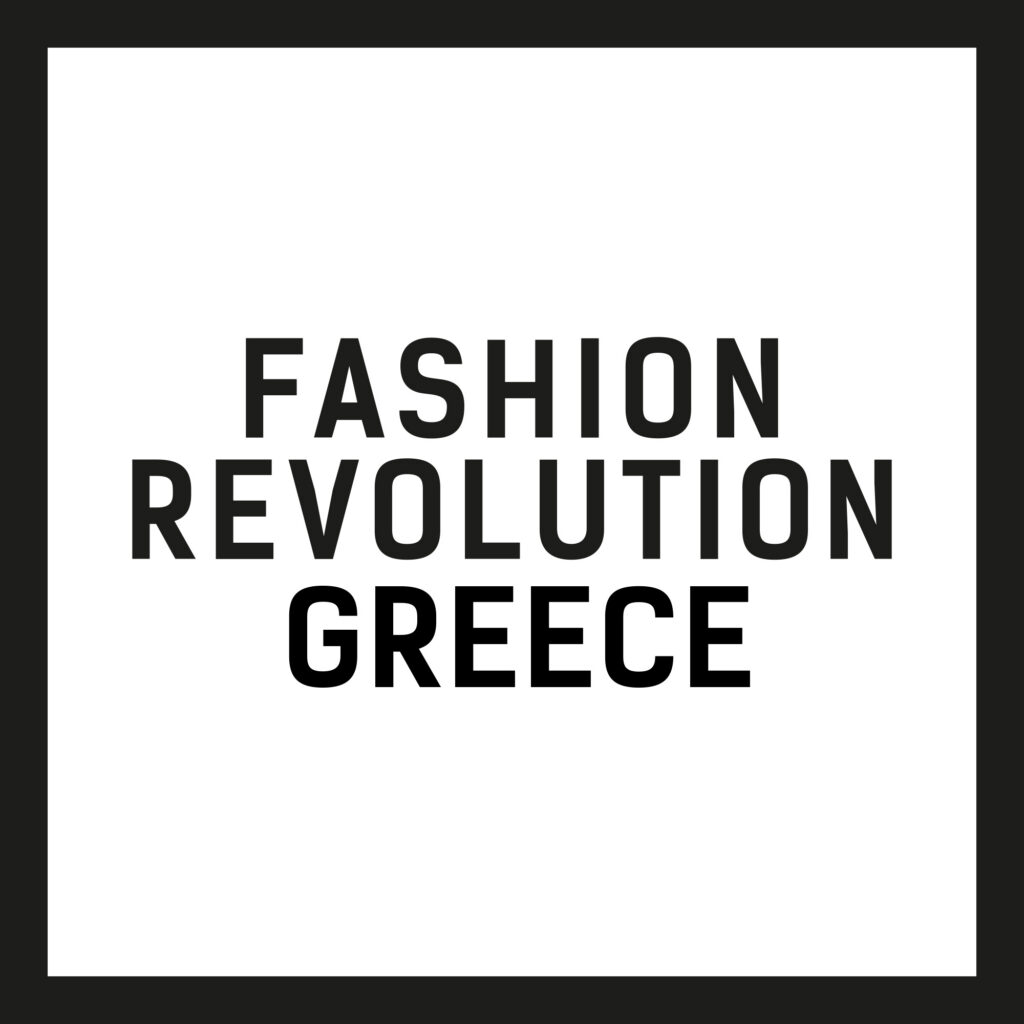
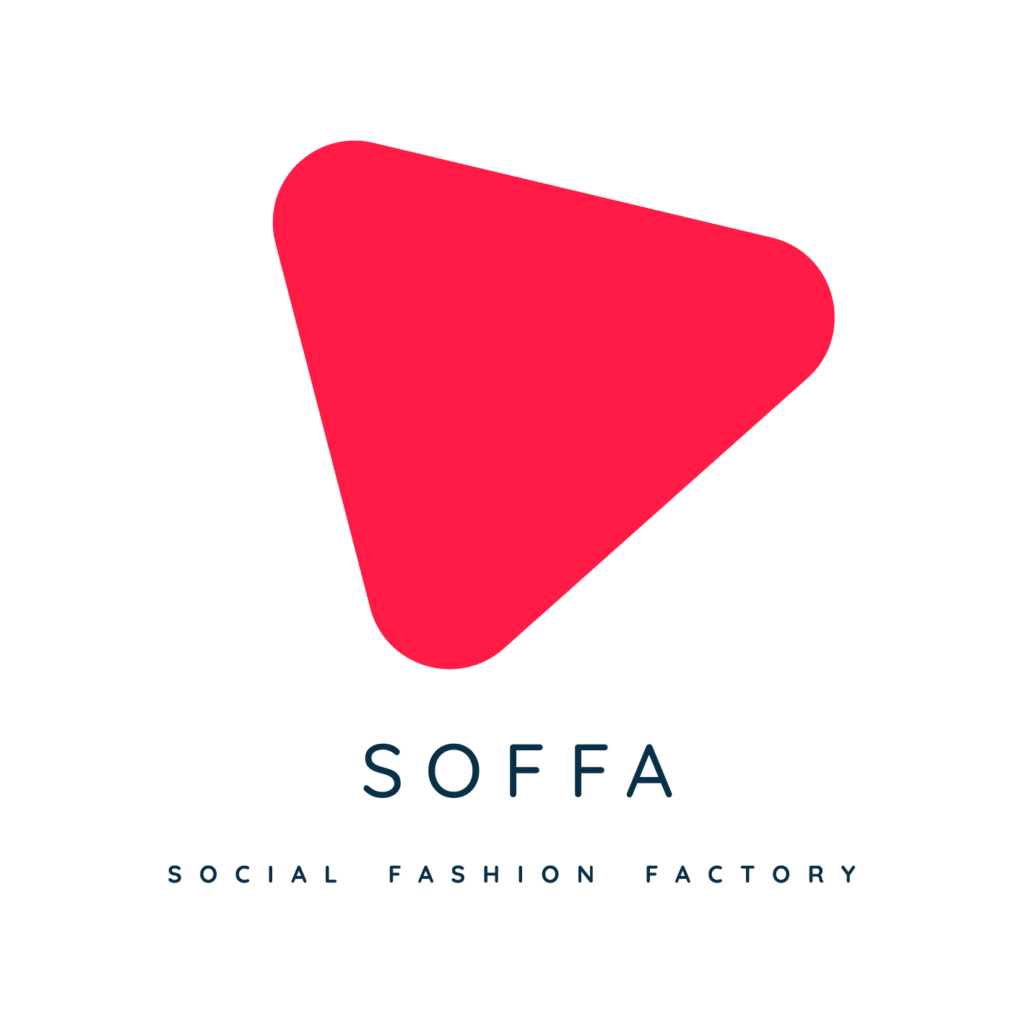
Mentors & Judges
Greek Mentors & Judges (alphabetical by last name)
Prof. Konstantinos Aravossis — Mechanical Engineer; UNESCO Chairholder on Green Innovation & Circular Economy, NTUA; Scientific Director, Circular Economy & Sustainability Institute (CESI); Vice President & Waste Management BoD Chairman, Regulatory Authority for Waste, Energy & Water (RAAEY). (Judge/Mentor)
Prof. Valia Aranitou — University of Athens; President, Institute of Commerce & Services (INEMY), Hellenic Confederation of Commerce & Entrepreneurship (ESEE). (Speaker/Mentor)
Prof. George Lekakos — AUEB; Generative AI expert; former Vice‑Rector for Research; Director, MSc in Management Science & Technology and MSc in Digital Transformation. (Judge/Mentor)
Prof. George Priniotakis — Industrial Design & Production Engineering, University of West Attica (UNIWA); Textile Engineer. (Mentor)
Dr. Fiori A. Zafeiropoulou — Partner, Horizon FABRIX; Senior Researcher, AUEB; Founder, SOFFA & Fashion Revolution Greece. (Judge/Mentor)
Orsalia Parthenis — Owner, Parthenis; President, Greek Association of Fashion Designers (HFDA). (Judge/Speaker)
Nicholas Yatromanolakis — Board Member, B. Papantoniou Foundation; Former Deputy Minister, Ministry of Culture; Founder, Policy Lab. (Speaker/Facilitator Day 1)
Eftychia Panagopoulou – Managing Director Pansik Fashion School
HFDA Designers: Maison Faliakos, Eleftheriades, Vassilis Zoulias. (Mentors/Speakers)
World Human Forum — Helidoni Foundation. (Speaker/Judge)
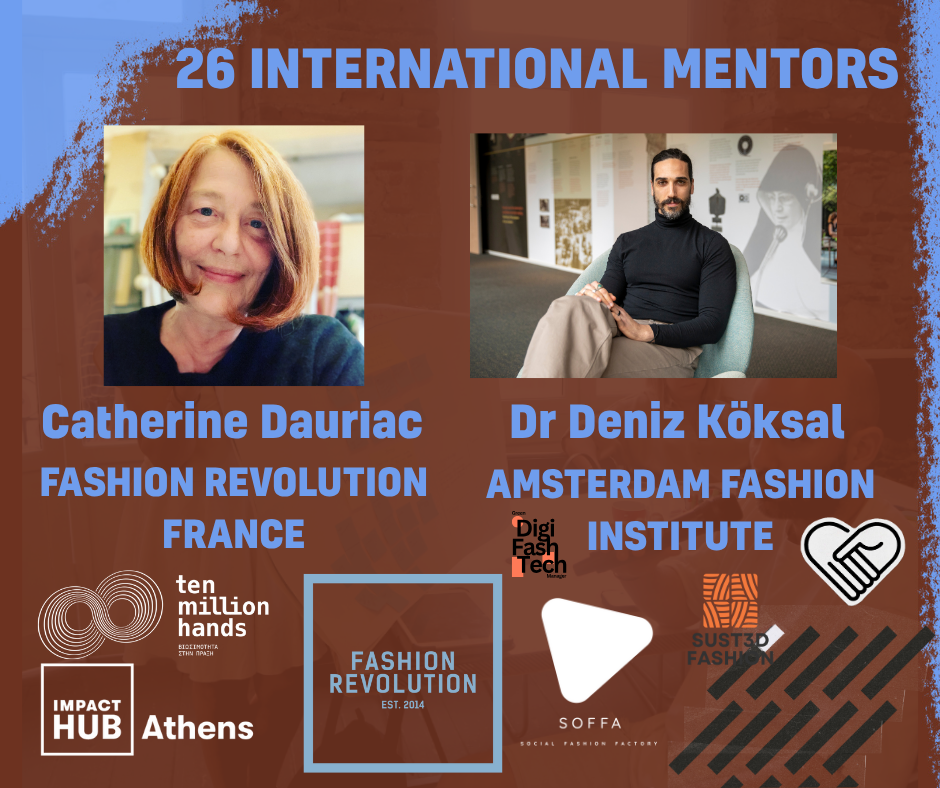
International Guests & Mentors (26 total across 8 cities)
From Amsterdam, Berlin, Paris, Istanbul, Milano, Bolzano, North Macedonia and Stockholm, including:
Catherine Dauria — Country Coordinator, Fashion Revolution France. (Judge/Mentor)
Ludovica D’Andria Fashion Revolution Italy— (Mentors/Speakers)
Prof. Zeynep — Textile Engineer, Bursa University. (Mentor/Speaker)
Dr. Deniz Köksal — Head of Fashion Management, AMFI (UAS Amsterdam), with AMFI faculty. (Mentors/Speakers)
Fashion Revolution Italy (Central Team) — fashion experts. (Mentors)
University of Bolzano — Design & Art — award‑winning alumni/teams. (Participants/Mentors)
Fashion Week Skopja Founders
Some international guests serve as mentors; others will join mixed teams as participants.
Selection & Participation
There are no strict technical prerequisites. Motivation, creativity, and a willingness to co‑create are essential. We value diversity of backgrounds across policy, business, design, craft, community, youth, and academia. Participants are expected to commit to all three days.
Selection is via an open call, with attention to professional background, motivation, and idea fit to maintain a balanced cohort across sectors.
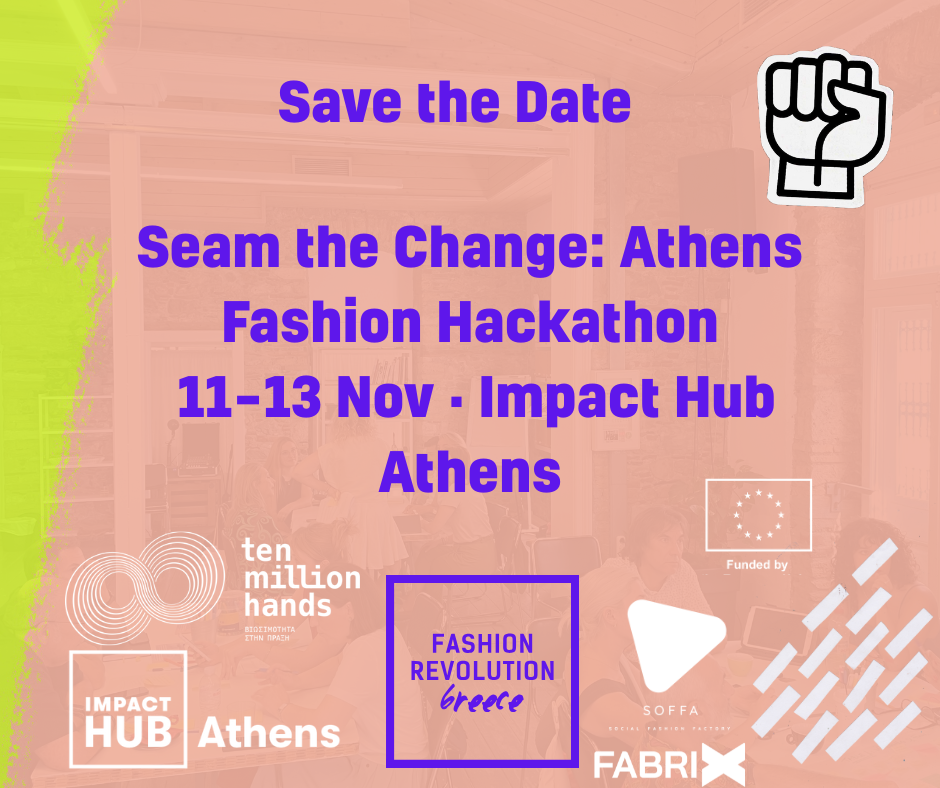
Organisers & Context
Main organiser: Impact Hub Athens TenMillionHands — FABRIX‑awarded facilitator.
Co‑organisers: SOFFA (consortium partner) & Fashion Revolution Greece (affiliate partner; FR sits on the FABRIX Advisory Board).
Within: FABRIX — accelerating circular manufacturing and strengthening local supply chains.
Day 1 Facilitation: Policy workshops & dialogues by Policy Lab (Founder: Nicholas Yatromanolakis).
Outcomes & Next Steps
The hackathon produces actionable prototypes and team roadmaps. Outcomes will feed into the Implementation & Co‑Creation program, supporting decentralized, regenerative T&C manufacturing in Athens and beyond. The Hackathon is testing the sustainability of the Fabrix platform in other regions of Europe. Teams can access the FABRIX platform for toolkits, cases, and policy resources to continue development after the event.
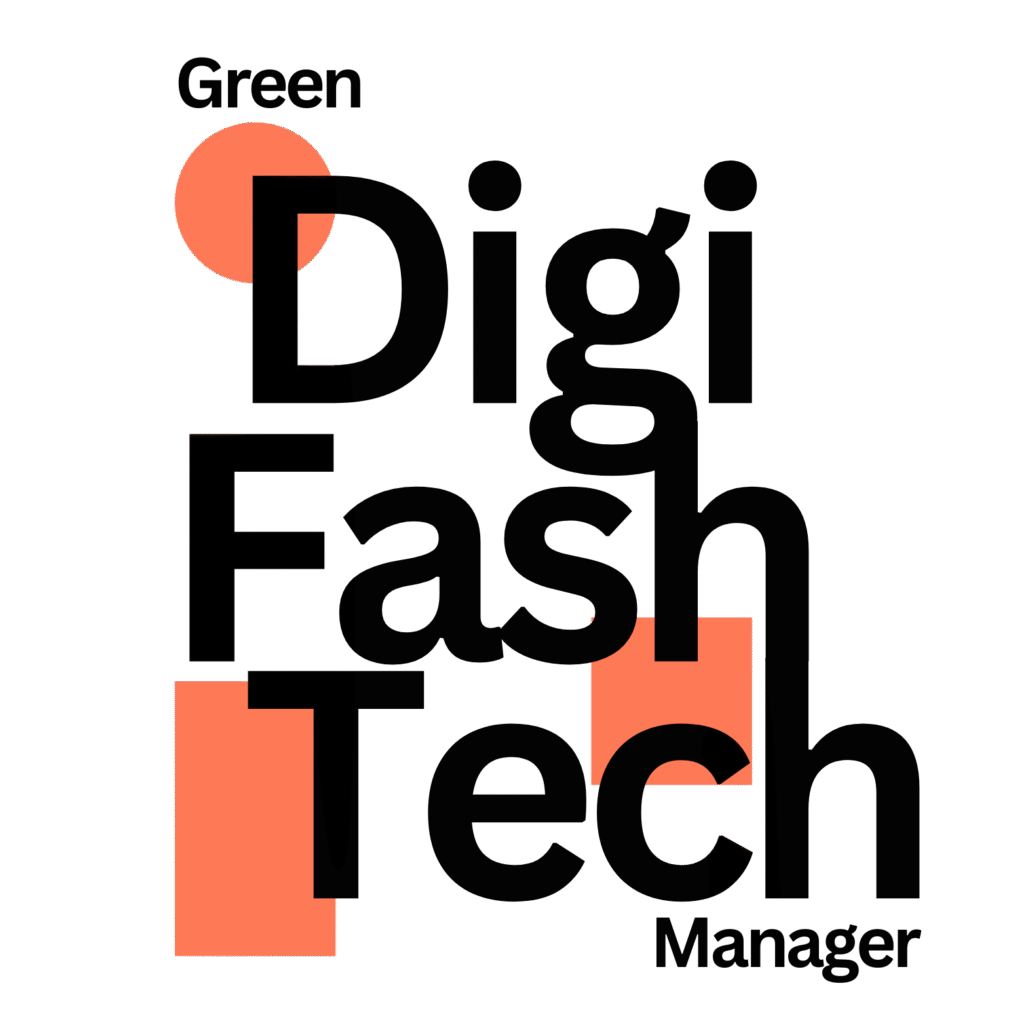
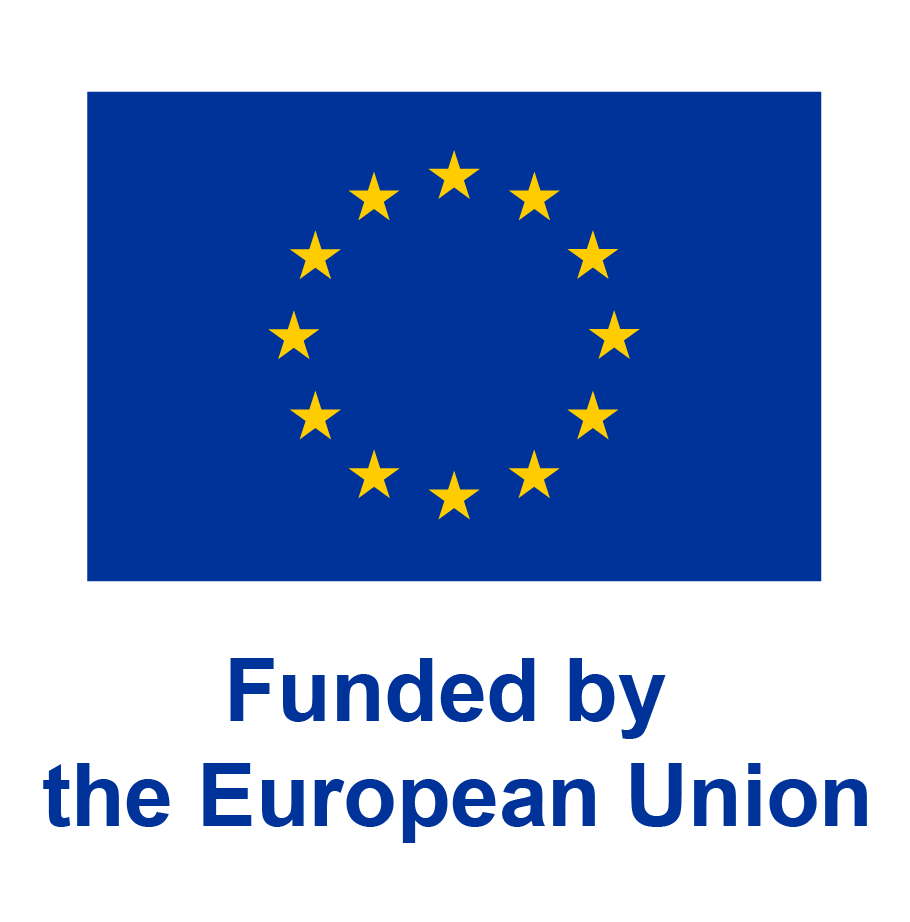


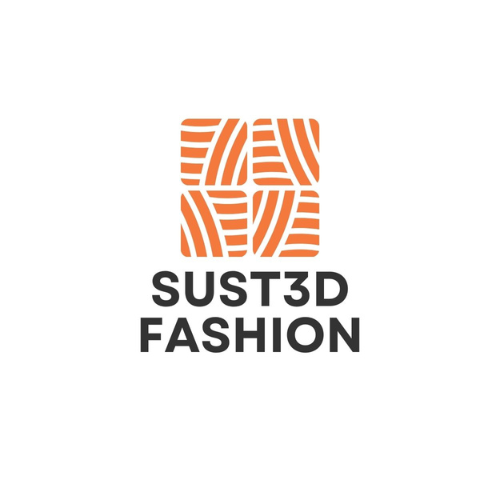
Co-Funded by the European Union. Views and opinions expressed are however those of the author(s) only and do not necessarily reflect those of the European Union or the Swedish Council for Higher Education, or the European Union or the European Education and Culture Executive Agency (EACEA), or HaDEA. Neither the European Union nor the granting authority can be held responsible for them.
